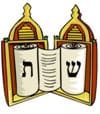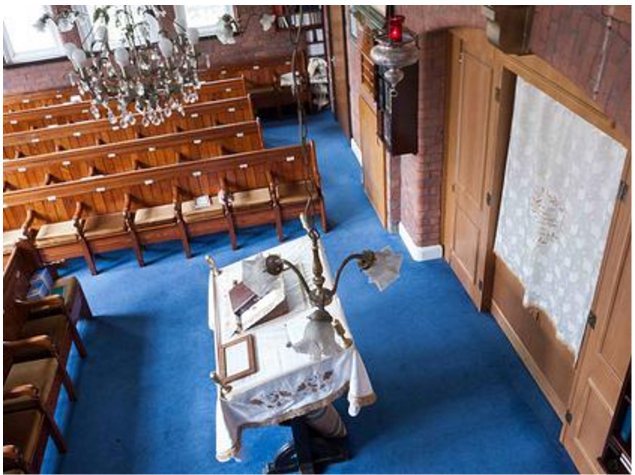
ק׳ ק׳ שׁערי תפילה






לוח זמני תפלה לקיץ תשפ״ג
Summer Timetable 5783 – 2023
מוצאי שבת | ערבית )מוצ”ש( | סוף זמן קראת שמע | זמן שבת | פלג מנחה (תה״ד) | פלג מנחה (לבוש) | מנחה וקבלת שבת | תאריך | שבת פרשת |
Shabbat Ends | Arbit | Shema to be read before | Candles to be |
| Earliest Candle lighting | Minha & Kabbalat Shabbat* | Date | Parasha |
PM | PM | AM | PM | PM | PM | PM |
|
|
10:15 | 10:11 | 9:17 | 8:57 | 8:11 | 7:34 | 7:20 | 28/29 July | ואתחנן (שבת נחמו) |
For those not in the Bet Hakeneset, but wishing to bring in Shabbat with the Kahal, candles should be lit about 30 minutes after the time listed for Minha and Kabbalat Shabbat, unless the time listed in the ‘latest candle lighting’ column is earlier, when candles MUST be lit by that time, in all cases.
מוצאי שבת | ערבית )מוצ”ש( | סוף זמן קראת שמע | זמן שבת | פלג מנחה (תה״ד) | פלג מנחה (לבוש) | מנחה וקבלת שבת | תאריך | שבת פרשת |
Shabbat Ends | Arbit | Shema to be read before | Candles to be |
| Earliest Candle lighting | Minha & Kabbalat Shabbat* | Date | Parasha |
PM | PM | AM | PM | PM | PM | PM |
|
|
9:59 | 9:55 | 9:22 | 8:45 | 8:00 | 7:24 | 7:10 | 4/5 Aug | עקב |
9:42 | 9:38 | 9:28 | 8:31 | 7:47 | 7:13 | 7:00 | 11/12 Aug | ראה (ש''מ) |
9:25 | 9:21 | 9:33 | 8:16 | 7:34 | 7:01 | 6:50 | 18/19 Aug | שופטים |
9:07 | 9:03 | 9:38 | 8:00 | 7:20 | 6:48 | 6:45 | 25/26 Aug | כי תצא |


- “And I prayed to Hashem at that time.” Why “at that time”?
3:23 – Defeating Sichon and Og, whose lands were part of Eretz Canaan, Moshe thought perhaps Hashem had annulled the vow against his entering the Land. - What characteristic trait is represented by Hashem's “strong hand”?
3:24 – His willingness to forgive. - What is ha'levanon?
3:25 – Ha'levanon means the Beit Hamikdash, which makes “white” (lavan), i.e., atones for the Jewish People. - What did Hashem tell Yehoshua after the battle of Ai?
3:28 – Yehoshua must lead the army into battle. - What will happen if the Jewish People fail to keep the mitzvot properly?
4:9 – The non-Jewish world will regard them as foolish. - How did the decree that Moshe not enter the Land affect him even in death?
4:22 – Even his remains weren't buried in the Land. - What is hinted by the word v'noshantem?
4:25 – The gematria of v'noshantem, 852, hints at the number of years until the first exile. - Why were the Jewish People exiled two years earlier than indicated by Moshe's prophecy?
4:25 – So that the rest of the prophecy “that you shall utterly perish” would not be fulfilled. - “You'll serve man-made gods.” Is this literal?
4:28 – No. It means that you will serve others who serve idols. - Why is east called mizrach?
4:41 – It is the direction from which the sun shines (mizrach means shining). - “Keep the Shabbat day as I have commanded you.” When had Hashem previously commanded us to keep Shabbat?
5:13 – Before Matan Torah, at Marah. (Shmot 15:25) - Where did the Jewish People first receive the command to honor parents?
5:16 – At Marah. (Shmot 15:25). - What is meant by “Hashem, our G-d, Hashem is One”?
6:4 – Hashem, who is now our G-d, but not [accepted as] G-d of the other nations, will eventually be [accepted as] the one and only G-d. - What are two meanings of loving Hashem “with all your might”?
6:5 – 1) With everything you own. 2) Whether Hashem treats you with kindness or harshness. - How well-versed must one be in Torah?
6:7 – If asked a Torah question, one should be able to reply quickly and clearly. - Where does the word totafot come from?
6:8 – Tot means two in Caspi. Fot means two in Afriki. Together they allude to the four sections of tefillin. - Who is fit to swear in Hashem's name?
6:13 – One who serves Hashem and reveres His name. - What does it mean that the Jews are the “smallest nation”?
7:7 – B'nei Yisrael are the humblest nation. - When someone serves Hashem with love, how many generations receive reward?
7:9 – 2,000. - Why are evil-doers rewarded in this world?
7:10 – So that they get no reward in the next world.

שאלה: כאשר יוצאים לטייל וכדומה, ומתארגן מניין
של עשרה אנשים לצורך תפלת מנחה או ערבית, האם כל אחד מצטרף למנין, אף על פי שאינן
נמצאים בחדר אחד סגור?
לשאלת רבים:
בניגוד למה שנתבאר כאן בעבר, לגבי הדילוגים בשעת אמירת “קדוש קדוש קדוש”
בקדושה שבחזרת הש”ץ. המנהג הוא שמדלגים פעם אחת בכל פעם שאומר
“קדוש”, ולא שלש פעמים. ולדעת מרן הרב שליט”א, אין צורך שכל דילוג
יהיה יותר גבוה מקודמו, אלא יהיו כל הדילוגים שוים.
תשובה: בני אדם
היוצאים לטייל, בפרט בימים אלה, צריכים מאד מאד להזהר, שלא להתבטל חלילה וחס בשום
תפילה, וכל שכן מהנחת תפילין בישוב הדעת כראוי. וכן יזהרו לברך ברכת המזון בנועם ובנחת.
וכן בכל עניני המצוות. שכן עיקר הטעם שאדם ירא שמים יוצא להנפש, הוא בכדי לרפאות
את נפשו, ולחזק את כחו, להמשיך במרץ בעבודת הבורא, אם בלימודו ואם במלאכתו.
ובודאי, אם ילך ויתרשל בענינים רוחניים בשעה שהוא יוצא לנופש, לא רק שאין בכך
תועלת לנפשו, אלא אדרבה,
נמצא שהוא מכשיל את עצמו, ומתיש
כמו, ומתרחק מעבודת ה', ומי יודע כמה חודשים ושנים יקח לו לתקן אחר כך את המעוות.
מנין של עשרה אנשים המתפללים במקום אחד, אף על
פי שלכתחילה בודאי שיש להתפלל בבית כנסת, מכל מקום במקום שאי אפשר בענין אחר, מותר
להם להתפלל אפילו במקום פתוח, ומצטרפים זה עם זה למנין. ואמנם יש מהאחרונים שכתבו
שצריך שיהיו כולם מסתופפים יחד ממש, ולא שיהיה אחד עומד כאן והשני רחוק ממנו, מכל
מקום למעשה כל ששומעים את השליח ציבור, ורואים אלו את אלו, מצטרפים למנין.
אולם כתב הגאון רבי יצחק יוסף שליט”א,
להעיר על כך, שיש להזהר שלא יתפלל אחד מהמתפללים ברשות אחרת ממש. ולדוגמא, אם
מתפללים בצד כביש, ויש שם גדר העומדת למחיצה בין הכביש לשולי הכביש, הרי שהגדר
(שגובהה יותר משמונים ס”מ)
מבדילה בין הרשות שעומד בה השליח
ציבור, לרשות האחרת שמעבר לגדר, ושם, יש מקום לומר שאין המתפללים מצטרפים לתפילה
במנין כלל.
כמו כן יש להזהר, כאשר מתפללים במקום פתוח, שלא
יתפללו משני צדי כביש או שביל כדומה, שמכיון שאותו השביל הוא רשות הרבים, הרי
שרשות הרבים מפסיקה בין מחצית מהמתפללים לבין המתפללים האחרים, ובאופן כזה יש לומר
שאין הם מצטרפים אלו לאלו למנין
Question:
When one goes on a trip or the like and a group of ten men gather to pray
Mincha or Arvit, can they all be included in the Minyan (quorum of ten men)
although they are not in an enclosed room?
people go on trips or vacations, especially during this time of year, one must
be extremely careful not to miss any prayer, G-d-forbid, and certainly not to
miss donning Tefillin with the proper mindset and concentration. One must
likewise make sure to recite Birkat Hamazon slowly and pleasantly. The same
applies to any of the Mitzvot, for the purpose of a G-d-fearing individual
taking a vacation is in order to relax his spirit and recharge his strength so
that he may be able to continue serving Hashem with enthusiasm, either by
learning or working. Certainly if one slacks off in matters of spirituality
while on vacation, not only does this not benefit his soul at all, on the
contrary, he is actually causing himself to falter by weakening himself and distancing
himself from the service of Hashem. Who knows how many months or years it will
take him to correct this failure?
pray in a synagogue, it is nevertheless permissible for them to pray in an open
area when there is no other choice and they are all indeed included in the
Minyan. Although there are Acharonim who write that they must all band closely
together and not stand far apart from each other, as long as they all hear the
Chazzan and can see one another they are all included in the Minyan.
that none of the ten men prays in a totally separate domain, for instance, if
they are praying on the sidewalk and there is a fence or gate between the
street and the sidewalk, the fence acts as a partition between the domain the
Chazzan is standing in and the domain on the other side of the fence (if it is
at least 80 cm high). In such a situation, there is room to say that not all of
the men present are included in the Minyan.
should not stand on opposite sides of the street or a path because the street
is considered a public domain and serves to segregate between the various
worshippers. In this way as well, there is room to say that not all of the men
are included in the Minyan


























